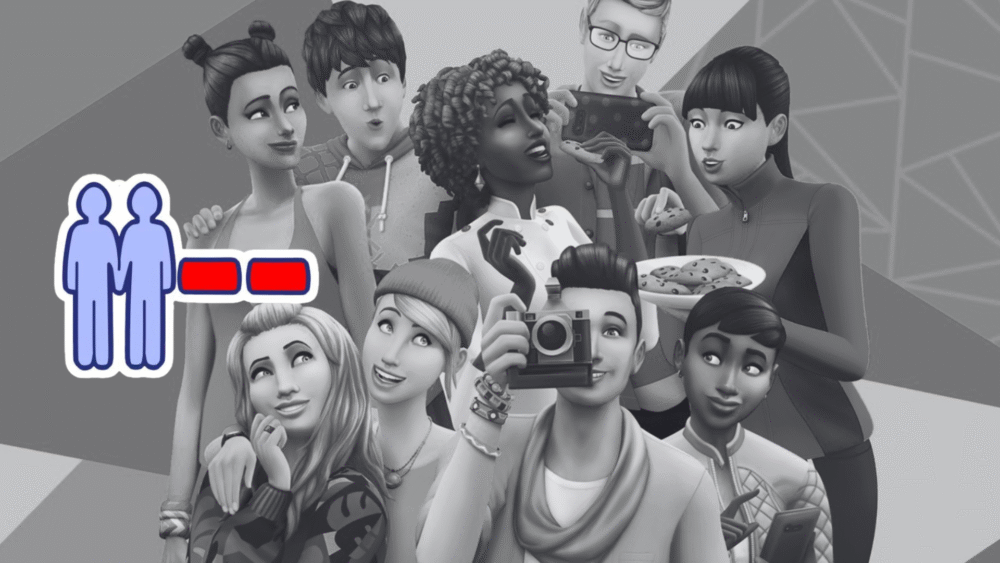
“I’ve lost my safe space”: LGBTQIA+ The Sims players boycott game over potential conservative acquisition
LGBTQIA+ The Sims players have claimed they will boycott the franchise if an acquisition by Saudi Arabian investors and US president Donald Trump’s son-in-law Jared Kushner is to go ahead, citing fears that investors could erode the inclusivity the game has become known for.
On 29 September it was announced that Saudi Arabia’s sovereign wealth fund (PIF), Kushner’s firm Affinity Partners, and Silver Lake would be acquiring Electronic Arts (EA), the company behind The Sims, in a deal worth a reported $55 billion. The deal, which still needs approval from EA shareholders, is expected to be finalised in 2026.
In the wake of the announcement, queer Simmers expressed concern over the investors’ links to the Trump administration and Saudi Arabia – a country which previously banned a Sims app, and which Equaldex rated one of the worst in the world for LGBTQIA+ rights – with gamers quickly speculating about what the buy-out could mean for the game’s queer content.
“I honestly felt sick,” Zoe Taylor, a gamer from Arkansas, said of the announcement.
“It was like finding out my home, my safe space, the one place where I can be consequence-free for being me, for exploring interesting storylines – or hell, where I don’t have to think about being queer and how others will react – was just bought out by the worst kind of people.”
Silver Hawker, an ambassador for LGBTQIA+ young people’s charity Just Like Us, said the “once profoundly liberal game that welcomed LGBTQIA+ identities and satirised capitalism” now seems “a world away from its roots” due to the proposed acquisition.
The Sims has been queer from its creation, with same-sex relationships introduced in 1999 after a lesbian kiss was accidentally included in a demo. The Sims 4 in particular has been praised for building upon this initial LGBTQIA+ representation, with updates including customisable pronouns, settings for sexual and romantic attraction, trans-inclusive updates like the addition of top surgery scars in Create-A-Sim, and even an expansive range of Pride decor and clothing.
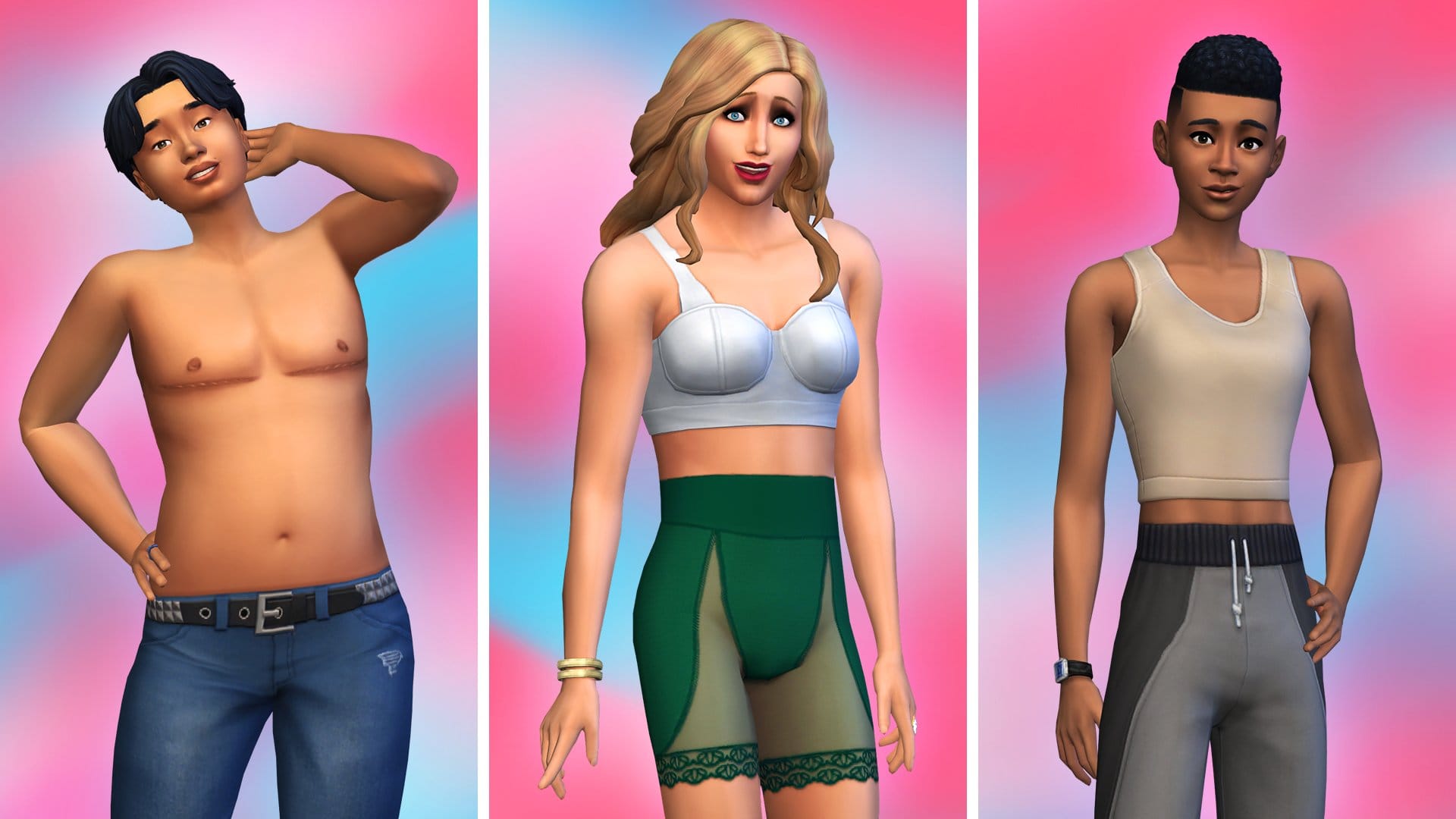
This inclusivity has been shaped by the game’s audience, with a 2022 survey by Maxis finding 43% of Sims 4 players identify as non-heterosexual, while 17% identify as trans or gender-fluid.
Taylor explained that “from the very beginning” of The Sims’ creation in 2000, an appeal of the game had been that there were “no defined gender roles”, and if players wanted to create a stay-at-home dad or female rocket scientist, that was “normalised”, while Simmers could also create mods and custom content to further improve representation.
“When it comes to representation, The Sims 4 has pushed boundaries more than any other game,” Taylor explained. “You can customise not just your sims’ appearance, but their relationship, whether they’re [asexual/aromantic], if they’re monogamous or polyamorous, or even if they’re open to changing. It normalises being queer, and that’s an environment that just does not exist in the real world anywhere.”
She said one of her fondest memories playing the game was discovering a modding website for The Sims 2 which created a collection of feminine clothing designed specifically for masculine sims.
“The community of trans and LGBTQIA+ Simmers was just breathtaking, and really encouraged me to explore my transness even more,” she said, adding that the community “got me through an extremely difficult period in my life”.
Hawker added that as a “young, closeted teenager”, the game was one of the first instances where she could see herself represented.
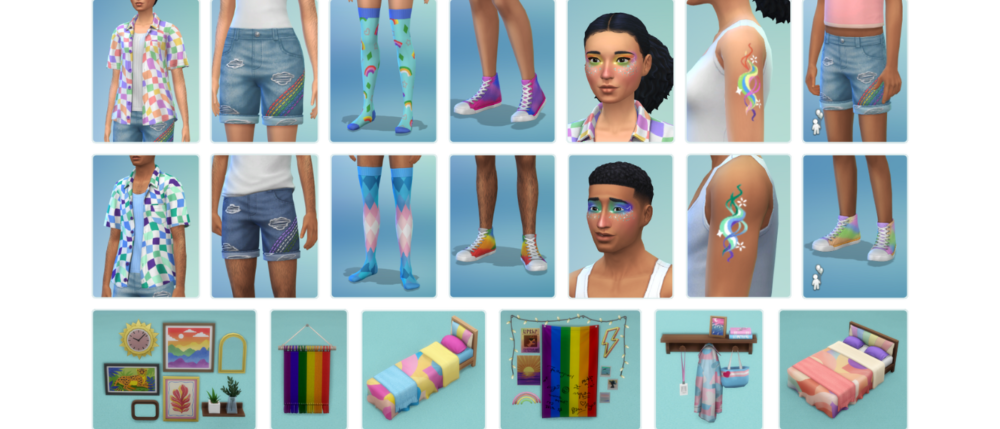
“I cannot emphasise how vital it was for me to be able to escape into a world where my idealised sim version of myself lived in domestic bliss with a wife, and homophobia wasn’t even a concept,” she said, adding that she thinks despite people’s fears, it is unlikely The Sims’ explicitly queer characters and stories will be abandoned due to EA’s sale.
“It’s difficult to say exactly what the intentions are with this buy-out, with EA having so many games,” she explained. “Some think the focus will be on the sports games, and The Sims will be left as-is, which I hope is true.
“I would anticipate that there would be no anti-LGBTQIA+ changes in this franchise, especially considering such a large population of the fanbase are LBGTQIA+, and the efforts it would take to alter the game’s code… However, I can’t say I am holding my breath.”
Astrid, a player who streams The Sims on Twitch, added that while the game’s queer representation isn’t perfect – the company was criticised in 2022 for its controversial decision to not initially release an LGBTQIA-inclusive wedding-themed expansion pack in Russia due to the country’s anti-LGBTQIA+ “propaganda” laws – The Sims has always been known for its commitment to improving diversity.
“I’m especially concerned about the potential rolling back of LGBTQIA+ inclusivity in The Sims franchise,” Astrid said. “I’m worried that with EA being owned by more conservative groups, features like that could disappear, and we could see the game defaulting to cis and heteronormative settings… While it’s unclear at this time whether they would take things to such extremes, I feel it’s a distinct possibility we must consider.”
Players added that if gameplay is changed in any way under new ownership, young queer players may not only lose the game’s LGBTQIA+ representation, but the community surrounding The Sims, which include forums, modders, custom content creators, and more.
Q Cummins, another ambassador for Just Like Us, said the first people they came out to were “internet friends with a shared passion for gaming and media”, and they worry any changes to the game may mean “people will lose that outlet at a time where LGBTQIA+ rights already feel very tenuous.”
“The Sims and other sandbox games have always been tools for queer people to explore gender and sexuality without having to face the real life stigma or potential stressors of coming out to family and friends before you really know how exactly you want to identify or have the words for self-expression,” they said.
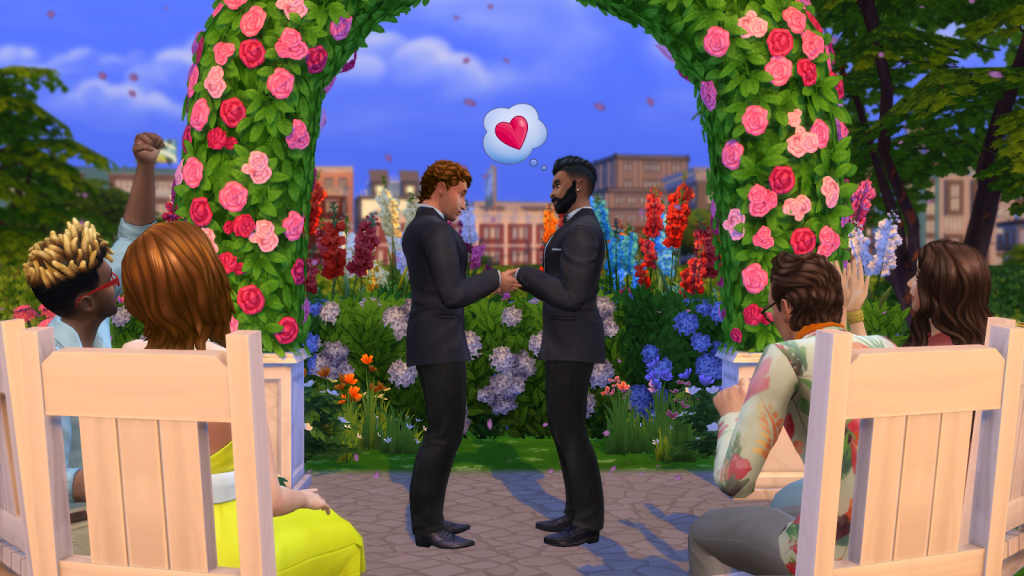
Cummins added that there have previously been issues with gamers creating mods specifically to erase LGBTQIA+ options in the game, and EA has spoken out against such behaviours in the past. With the new investors taking over, however, Cummins fears EA may become “less likely to continue advocating for queer players”, which would feel “isolating, and ruin the worlds [queer gamers] have built for themselves”.
While the acquisition has not yet been finalised, and no changes to gameplay have been announced, several players have made the choice to boycott the company, whether by refusing to buy new expansion content, or deleting the game from their computers altogether.
Astrid explained that despite playing The Sims for almost two decades, they will be boycotting the game completely if the acquisition goes through.
“Even if very little changes in the games themselves, I find the stances, actions, and political impact of the new owners abhorrent, and the idea that my money would directly contribute to their status and wealth is unacceptable to me,” they explained.
Taylor, who played The Sims “anywhere between a couple of hours a week to a couple of hours a day” before the announcement, as well as creating custom content, said she has already uninstalled the game due to the “massive human rights violations Saudi Arabia is responsible for”.
“If this is the company EA wants to keep, it’s not a company I want to give any more money to, ever again,” she said. “I wanted to send as clear a message as possible to whatever metric tracks these sorts of things that I don’t want the EA app on my computer anymore.
“If that means giving up my favorite game, I’m okay with that.”
Others, while not directly boycotting The Sims, have found it “difficult to enjoy” the game in the same way, but still engage in Sims content made by queer creators.
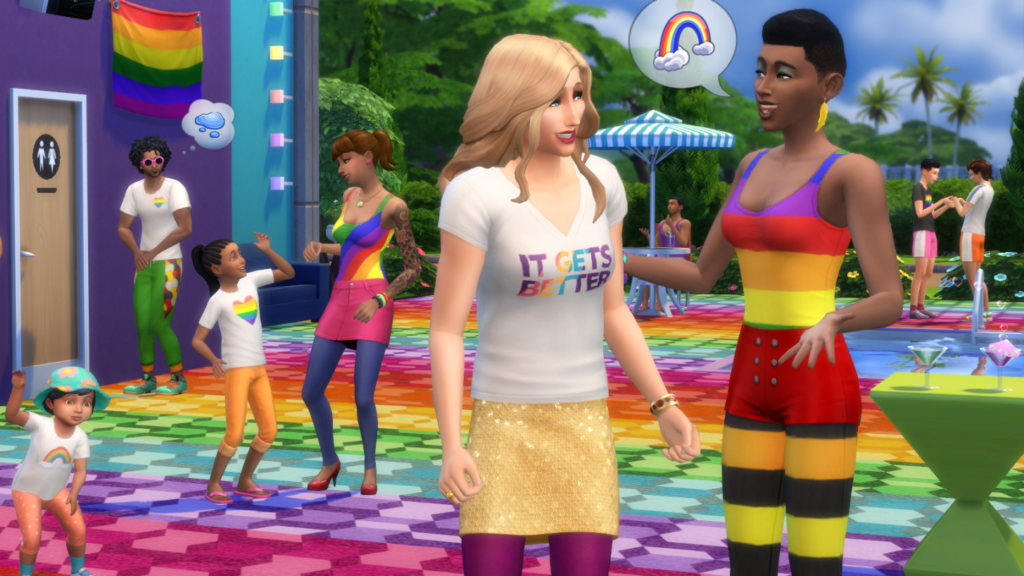
“If there were any changes made that meant these creators no longer felt comfortable supporting the game, I’d be devastated,” Hawker explained.
Andrew Wilson, CEO of EA, has issued a statement claiming the company’s values will “remain unchanged”, though he did not reference The Sims specifically.
“They are committed with conviction to EA – they believe in our people, our leadership, and the long-term vision we are now building together,” he said of the investors.
Astrid explained, however, that the buy-out potentially represents a loss to the queer community, whether through an intentional roll-back of the game’s inclusivity, or through players and creators boycotting, meaning many young people “won’t have the opportunity to explore their identities and self expression through the game”.
“So many Simmers have talked about how, when they were young and closeted or questioning, they were able to find comfort and safety in creating LGBTQIA+ sims and stories about queer experiences,” they said. “To roll back representation in The Sims franchise would be to rob many people of the chance to more safely explore their identities and find comfort they may lack in real life.”
“I myself have used The Sims as an outlet to explore so many aspects of my identity, and I would hate to see others lack the chance to experience that, too,” they said.
Gayming Magazine has reached out to EA for further comment.





